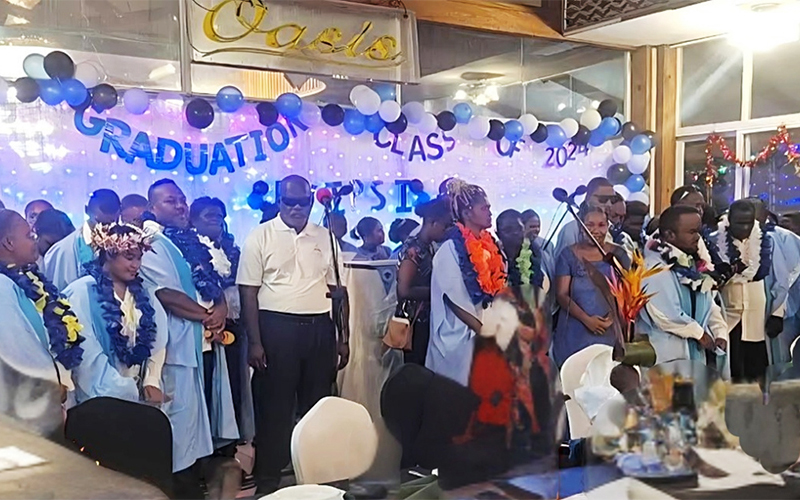In a significant step towards fostering inclusivity and independence, thirty blind and visually impaired individuals graduated earlier this month from the “Taep fo Laef” and literacy programmes in Honiara, Solomon Islands. The training programmes, led by the Blind and Vision Impaired Persons Support Initiative (BVIPSI) with support from COL, focused on equipping visually impaired persons with essential skills for greater independence, employability, and inclusion in society.
The graduation ceremony, held in the week of the United Nations International Day of Persons with Disabilities, celebrated the achievements of the participants in the presence of distinguished guests, including Dr Franco Rodie, Permanent Secretary of the Ministry of Education and Human Resources Development (MEHRD). The cohort of 200 individuals with disabilities benefited from this initiative, with the graduating group marking a significant advance in their personal and professional journeys.
The “Taep fo Laef” programme concentrated on imparting practical skills such as computer literacy, daily living techniques, and employability skills to help participants navigate their environments more effectively. In parallel, the literacy programme offered foundational training in essential reading and writing skills, including phonological awareness, letter recognition, blending sounds, and sentence construction. These competencies aimed to bridge educational gaps and provide participants with opportunities for greater engagement in education, employment, and community life.
The graduation ceremony showcased inspiring demonstrations of the participants’ progress in these areas, toward greater self-reliance and confidence, underscoring the transformative impact of the programmes.
Addressing the graduates via video link, Dr Betty Ogange, COL’s Education Specialist: Teacher Education, highlighted the organisation’s commitment to advancing learning in underserved communities. She noted that the “Taep fo Laef” programme exemplifies how innovative delivery methods can empower visually impaired individuals to lead independent and fulfilling lives.
For the participants, the programmes provided more than skill development—they fostered a sense of belonging and community, empowering them to navigate a world often not designed with their needs in mind. The success of this activity underscores the power of collaboration and the impact of committed partnerships.
The programmes were made possible with technical expertise from COL and were supported by a grant to COL by the Ministry of Foreign Affairs and Trade, New Zealand.

